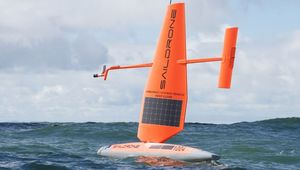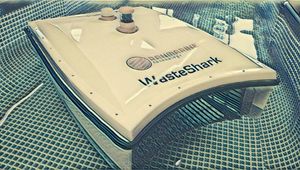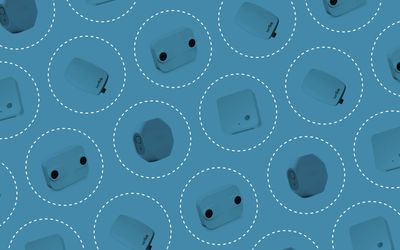Generic Node, a LoRaWAN® - IoT device that can be used for several applications at once
A customisable IoT device that can support 30+ use cases
Technical Specifications
| End-to-end encryption | AES-128 |
| Firmware updates | Wireless over-the-air-update from the LoRaWAN network server |
| Power | 2 AA batteries or external power supply ranging from 2.5 - 5.5V DC |
| Battery life | 2 years minimum (depending on the behavior of your application) |
| Open development tools | Command line, docker, STM32Cube IDE (Eclipse), Visual Studio Code, FreeRTOS. Development tools are freely available at the GitHub repository. |
| LoRaWAN operator agnostic | QRCode or Secure Element registration/activation with any LoRaWAN network. |
Overview
What exactly is Generic Node?
LoRaWAN, a low-power, wide area network protocol, promises you roaming, secure and low-cost sensors that last on a battery for years. The Things Industries’ Generic Node Sensor Edition delivers this promise with a strong end-to-end encryption and firmware over-the-air update that enables the device to be configured and programmed to support 30+ use cases. Generic Node’s reference hardware design comes with motion, free fall, temperature, humidity, and orientation sensors. It is a production-ready device that can be used for many applications without adding external components or hardware.
At the core of the Generic Node sensor edition, you can find STMicroelectronics’ STM32WL, the first dual-core system-on-a-chip that consists of both a microcontroller and a LoRa radio as a single package. Generic Node also includes a LoRa Radio and MCU. The virtual antenna element ensures optimal performance and design, reducing the time for design revisions.
The open-source implementation of the Generic Node allows for a variety of integrations and continuous device growth. Generic Node’s features can be used as-is or customized to meet specific requirements. On-board components of the device are the result of a number of design decisions that prioritize security, low power, and long-range. Generic Node deployment requires zero hardware and firmware development.
“The IoT market is fragmented and therefore requires a large set of different devices. The non-recurring-engineering costs per device remain high. Our goal is to allow device makers to get a flying start with good development tools and example applications. The Generic Node allows you to start building IoT solutions without the complexity and risk of hardware engineering and lets you focus on the software that makes your product unique. We are super excited to release this into the ecosystem with our partners,” says Wienke Giezeman, CEO, The Things Industries.
LoRaWAN® is a mark used under license from the LoRa Alliance®.









